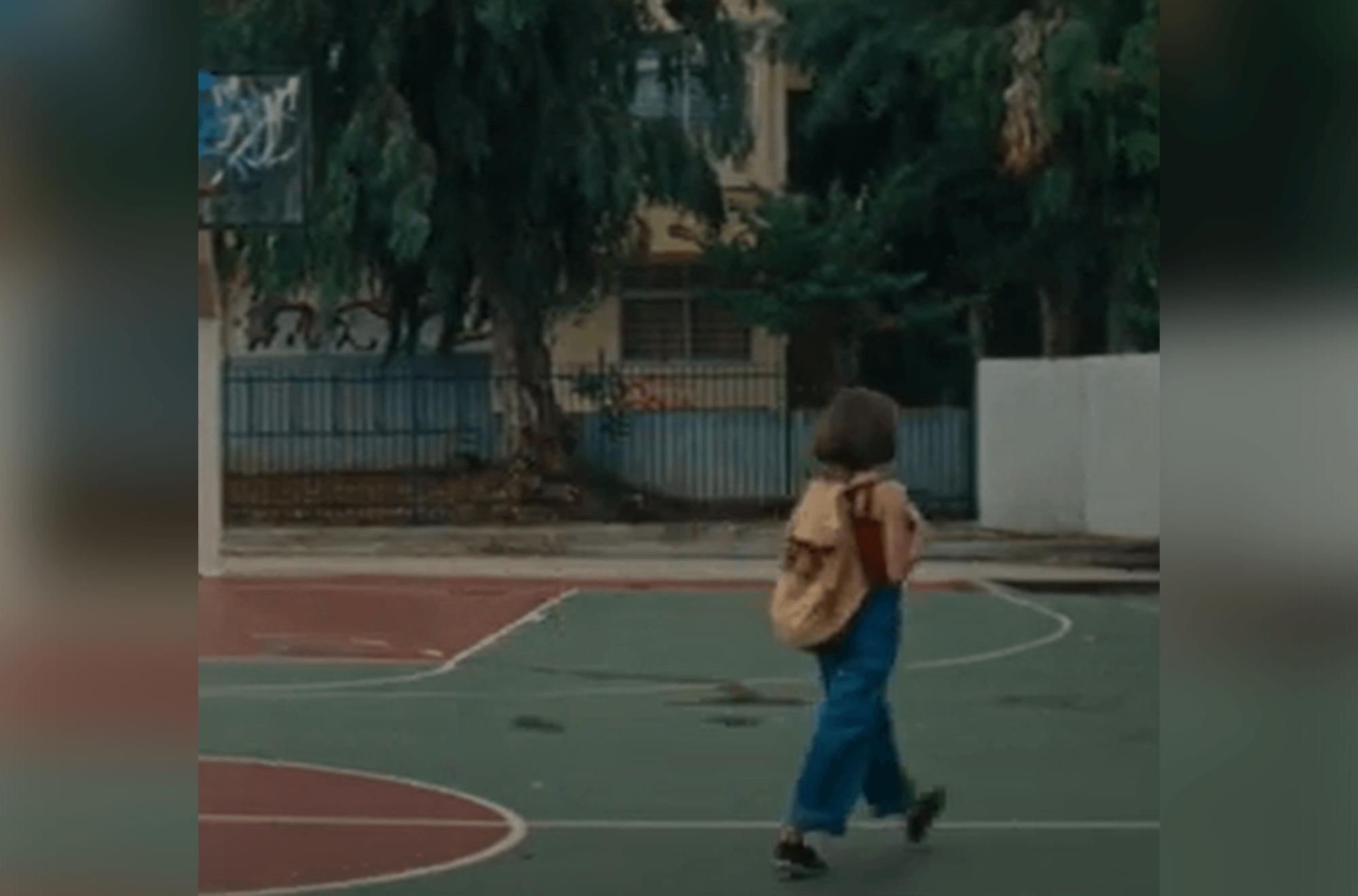
It is a morning in September, and a storm is coming. A mother takes her daughter to school, unaware that she will be a young woman when she comes back home in the evening. Fifteen-year-old Anna sneaks out of school and goes to a hospital. There, she is faced with an event that will close the door on her childhood forever.
What happens to a young woman’s psyche when she experiences an abortion while all surrounding social structures see her as a child? Greek director, producer and writer Sofia Georgovassili’s melancholy short film, which has screened at many festivals including the Berlinale Generation competition, reveals the world that the film’s protagonist is confronted with through minute details, touches, light pulsations, and mythology.
A deer runs by, passing in and out of view a few times before everything becomes a blur. The image takes a moment to understand: the deer is face to face with us, so close to the camera lens it’s out of focus. Small, red-brown roe deer have the ability to postpone pregnancies until spring. Something about that captured the interest of Sofia Georgovassili: “We can’t decide when we want something or not, or to pause it until the time is right,” she said.
The film opens with the scene of the deer, then cuts away to Anna, a teenage girl in a leafy city somewhere in Greece. Her mother drops her off at school. She walks into the building and out again, across an empty basketball court and then jumps the fence. Accompanied by her boyfriend and a friend, she heads for an abortion clinic. There, the corridors mirror the school’s, but, in this place full of adults, the teenagers are noticeably out of place. Outside, a Mediterranean cyclone looms; we hear radio warnings and sounds of a coming storm.
This is a coming-of-age story based on the real-life experience of a friend of Georgovassili’s, who accompanied his girlfriend to an abortion without her parents’ knowledge. Georgovassili learned of this story years ago; but said the theme has continued to resonate because the stigma around abortion, not only in Greece but around the world, hasn’t changed. During production, she interviewed several teenagers, including the actors. All of them said they would not tell their parents if they had an abortion.
The production of the film took three years. Early in the process, the script was rejected from public funding, and Georgovassili struggled to find locations open to filming the story. The answer was no after they heard what the film was about.” Eventually, a school allowed them to shoot for a short time, as long as they stayed out of classrooms. It took a year to get approval to film the clinic scenes, which were shot in a public hospital. By then, Georgovassili had decided—like the young woman in her film—not to disclose too much about her plans. The crew made quick work while they were allowed on location, and shot the film in two and a half days.
During those few days, a storm threatened production. Although the weather dissipated, it was written into the script, lending the film its title. The storm matched the atmosphere of the story, in which the social views around abortion and women’s bodies hover over a girl’s transition into adulthood. It reminds us that some storms pass unseen.
The film is 13:48 minutes and in some regions can be accessed from the New Yorker article.
SOURCE: The New Yorker, by Helena Ong, 17 February 2023



